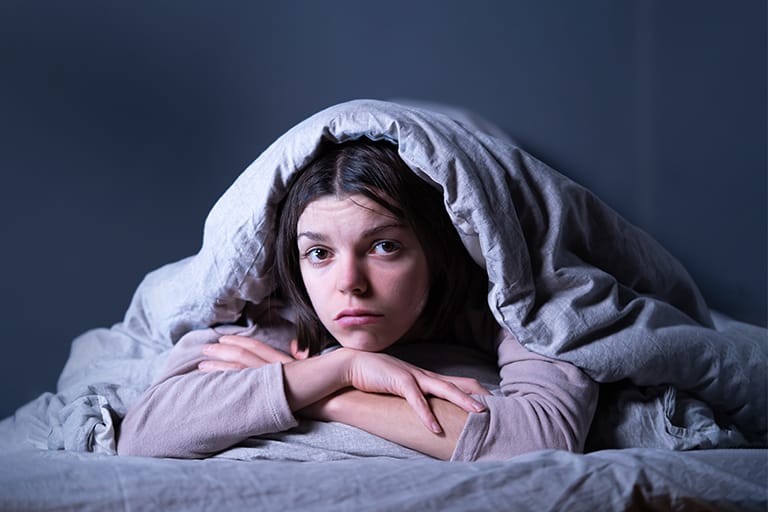One night’s bad sleep can leave you feeling moody and stressed the next day. So imagine how not sleeping for days or weeks on end will make you feel. It will eventually take a toll on your mental and physical health.
Being unable to sleep occasionally is not technically insomnia. It can turn into a sleep disorder if you continue to be unable to sleep. But you are not alone. According to research, more than half of the respondents reported having one insomnia symptom three or more times a week. This included having trouble going to sleep or waking through the night and not being able to go back to sleep.
When you do not get enough sleep, it can cause all sorts of mental and physical problems. A clinical insomnia diagnosis occurs when the following two things affect your life:
- Trouble sleeping at least three nights a week for at least three months.
- Trouble sleeping causes major stress or prevents you from functioning normally day-to-day.
Acute and chronic insomnia
Insomnia is a common sleep disorder and there are two types — acute and chronic insomnia.
Acute insomnia
Acute insomnia is when you have trouble sleeping from time to time. Most people experience this at some time throughout their lives. But it only lasts a short time and you soon return to sleeping normally. Acute insomnia does not need medical intervention. It only becomes a problem if it continues or you ignore it. When this occurs, it can turn into chronic insomnia.
Chronic insomnia
Chronic insomnia is a problem and will need medical intervention of some sort as it disrupts how you function every day. The sooner you seek help, the quicker insomnia becomes a thing of the past. The longer you leave it to get help, the more severe it will become and the harder it will become to solve.
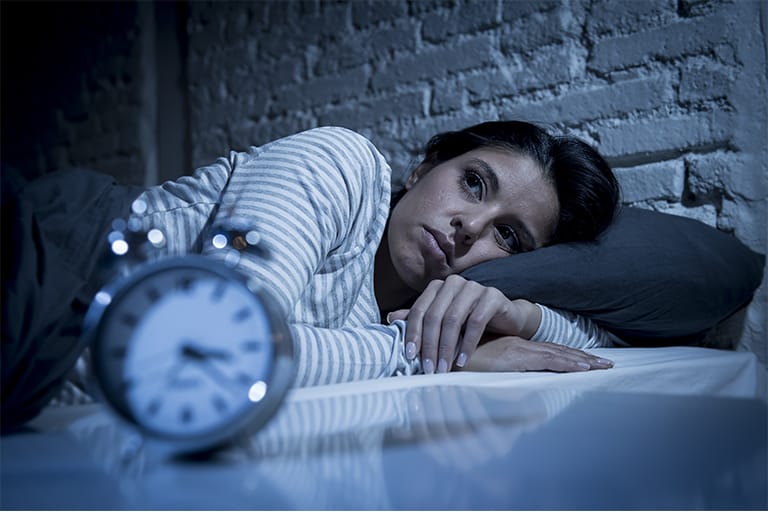
Insomnia symptoms
It is not hard to work out if you have insomnia as it is obvious if you have trouble sleeping. Having trouble falling or staying asleep, or waking up earlier than you wanted to are all symptoms of insomnia. Other insomnia symptoms include:
- Making more mistakes or becoming more accident prone.
- Low on energy or feeling less motivated.
- Finding it difficult to concentrate or focus.
- Constant fatigue.
- Moodiness.
- Feeling sleepy during the day.
- Increasingly poor memory.
- Headaches.
- Feeling generally unwell.
- If you are having trouble sleeping, it is important to see your doctor to ask for help.
Insomnia causes and risk factors
Insomnia is not usually caused by just one thing. There can be a range of causes according to the National Sleep Foundation. These include:
- Smoking.
- An inconsistent sleep routine.
- Medications.
- Mental conditions such as depression, ADHD, bipolar disorder, anxiety, and it can contribute to or raise your risk of anxiety and depression.
- Jet lag.
- Medical conditions such as sleep apnoea, Parkinson’s disease, chronic pain, asthma and arthritis.
- Drinking too much caffeine or alcohol.
- Eating a heavy meal too close to bedtime.
While insomnia is more likely to affect women than men, it can affect anyone at any time. But the following can predispose people to having insomnia:
- Working night shift or changes in working hours.
- Travelling out of your time zone.
- Trauma and emotional disorders.
- Worrying about money and financial stress.
- High levels of stress.
- Medical conditions such as heart disease, obesity and even menopause.
Insomnia diagnosis
Insomnia is not hard to diagnose. Your doctor can usually make a diagnosis just by talking with you. They will discuss your sleep habits, and your medical and family history. Always be open and honest when answering your doctor’s questions so they can determine the best way to help you.
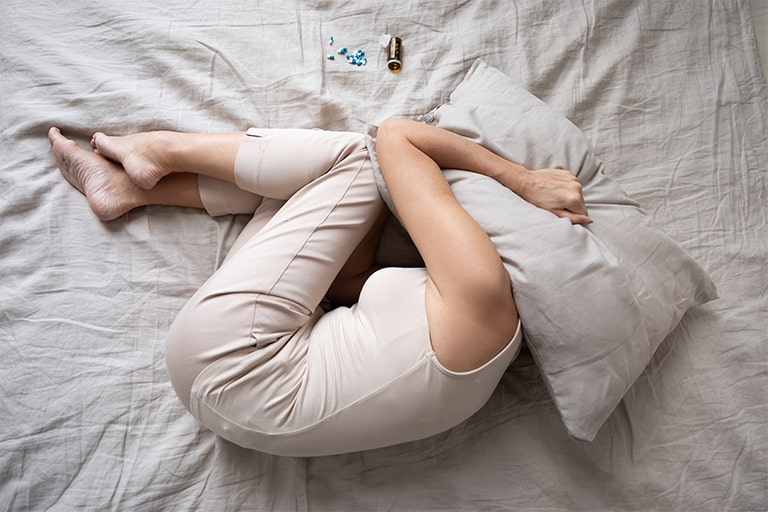
Insomnia treatment
Not getting enough sleep can leave you feeling there is little hope. But when you have chronic insomnia, you need to learn how to get a good night’s sleep again. It takes time and patience to recover.
One of the best ways to help your insomnia is to turn off all electronic devices at least an hour before going to bed. Also consistently going to bed and waking at the same time each day can get your system into the habit so you sleep well. Even try a glass of warm milk or a cup of herbal tea before going to bed. You can use the same strategies to prevent insomnia in the first place.
If you have chronic insomnia, these methods may not work. But you should keep them up as they are a good habit and may help your insomnia from getting worse or help other treatments work better.
Curing sleep disorders
There are a range of pharmaceutical and natural treatments that will help to cure insomnia. Your doctor will discuss the alternatives and you may need to try different treatments to find the one that works best for you. This may include cognitive behavioural or sleep hygiene training to disrupt negative thoughts and behaviours. Lifestyle changes you may need to make include:
- Minimising how much time you spend in bed when you do not intend to sleep. In other words, avoid surfing the internet and watching television in bed.
- Avoiding caffeine after dinner.
- Not exercising before bedtime.
Drug treatments
Sometimes your doctor will prescribe drug treatments for your insomnia. These may include:
- Zolpidem (Ambien)
- Eszopiclone (Lunesta).
You can also try over-the-counter medications such as the antihistamine Benadryl and melatonin. But, keep in mind, any sort of drug can have side effects, particularly sleeping pills if used over the long term. You should use them sparingly or you can risk becoming dependent on them to sleep at night.
Just make sure you follow your doctor’s advice when using prescription medication. And ask their advice about over-the-counter drugs.
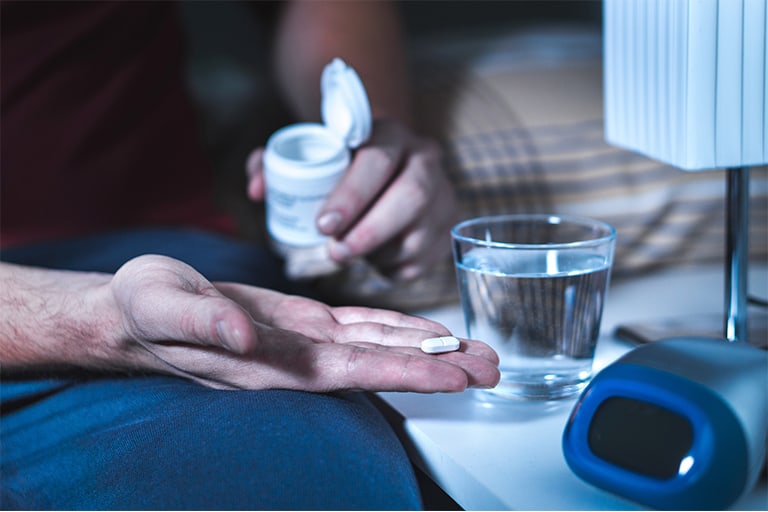
Try meditation
Try using meditation to help you relax before going to bed. It is a natural method that can help you sleep and then stay asleep. It can also improve the quality of your sleep. Meditation may reduce the symptoms that cause insomnia, including:
- depression
- anxiety
- pain
- stress.
Use of essential oils
Essential oils are extracted from plants, flowers and trees. These are used in aromatherapy by inhaling them with the help of a diffuser or massaging them into the skin. But it is important to use good quality oils that are pure. Cheap oils are not as effective as they are not usually pure and may also contain other chemicals which may cause side effects.
There are a number of essential oils that can help you sleep, including:
- Sandalwood
- Cedarwood
- Roman chamomile
- Lavender
- Bitter orange or neroli.
There are several studies that show essential oils can help you sleep and reduce sleep disturbance. As long as you use pure essential oils and as directed, there are no known side effects so they are generally safe.
Insomnia in pregnancy
It is common to have insomnia during pregnancy in the first and third trimesters. The changes your body is going through such as the need to urinate more often, nausea and hormones running rampant can keep you awake at the start of your pregnancy.
In the third trimester you may be emotional, stressing out about the baby and the added responsibilities of a child. You may also have cramping and back pain that keeps you awake at night.
It is normal for your sleep patterns to change during pregnancy as your body is changing to nourish the child growing within you. Making lifestyle changes can help you sleep better. You can try:
- Relaxation techniques such as meditation or having a warm bath with essential oils before going to bed.
- Eating a healthy diet.
- Being active during the day.
- Not allowing yourself to become dehydrated.
- Having a consistent sleep schedule.
Before you do any type of exercise or take any supplements, make sure you talk to your doctor about whether they are safe when you are pregnant.
The good thing is that if your insomnia is related to your pregnancy it will not affect your baby’s development and will soon pass.
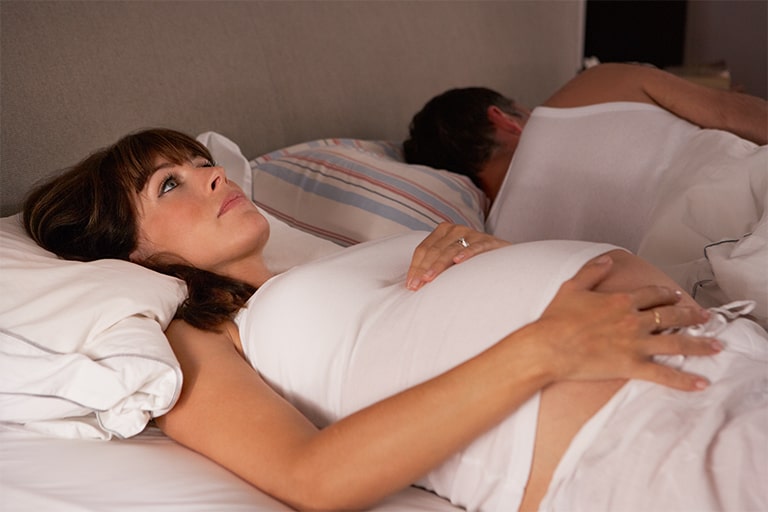
Sleep disorders in children
Children can also suffer from insomnia and the causes can be the same as they are for adults. These can include:
- medications
- stress
- too much caffeine
- mental health issues.
Your child may have insomnia if they have trouble falling asleep or keep waking up. And their symptoms may include:
- unexplained irritability and mood swings
- sleepiness during the day
- always getting into trouble
- trouble concentrating and forgetting things.
Treating a child with insomnia is the same as treating an adult. It is beneficial if they go to bed and get up at the same time consistently every night and day. Reduce their stress and turn off the television, phones and computers well before bedtime.
Blissiree Pty Ltd
Not getting enough sleep can turn your life upside down, especially if you do not know what to do. It can affect your mental, emotional and physical health, and all areas of your life. Tossing and turning, continually waking up during the night or too early, will leave you feeling tired and drained throughout the day. You need to do something about your insomnia if it does not go away naturally. If not, until you do something about your lack of sleep, it will continue to negatively impact you and those around you.
The Blissiree Pty Ltd is pioneering a new technique, a natural treatment for insomnia that may help. It only requires you to relax. Highly trained facilitators help you learn how to relax and recognise any underlying triggers. It may help you start to sleep well again at night. You may even notice an improvement after the first session.
With some simple changes to your life, and with practice, you can learn to sleep better. Discover what triggers your insomnia and work on managing your triggers.
If your insomnia has become a problem that affects your life, it is time to change it before it gets worse. Do something positive about it. Seek help. Take back control. You do not have to go through it alone. The sooner you get help, the sooner you can start getting a good night’s sleep again. Feeling tired every day can leave you feeling irritable and frustrated. Falling asleep at all times of the day puts you at risk of being involved in an accident. It is time to get back to enjoying life again.
Reach out
If you struggle with insomnia, reach out to our professionals. When you are not coping, contact us. We can talk to you about getting your sleep patterns under control. But if you reach a crisis point, call us immediately. We are here to support you.
We can work with you over the phone, via Skype or in our Spas. Book in today for my Emotional Empowerment Program. I have an introductory offer for just $49 so you may start taking back control of your life. We aim to help you cope with insomnia and any mental health challenges you may be experiencing. Our facilitators may alleviate the effects of these so you start to take control and enjoy life again.
Let me help alleviate the effects of anxiety and fear
My Emotional Empowerment Program has helped many people for more than a decade. My aim is to help manage your symptoms to help you start sleeping again. This can give you new hope for the future. A future filled with happiness, peace and contentment in weeks not years. Listen to what xxxxx has to say about my program after only a few sessions.
Take charge of your life. Book a free 25-minute telehealth consultation with Blissiree Pty Ltd founder, Terri Bowman. Or discover a seamless way that may help you manage your emotional and mental health by becoming a member. It will give you access to more than 75 audio programs that may help you to live an inspired life.
What are you waiting for? You have nothing to lose.

